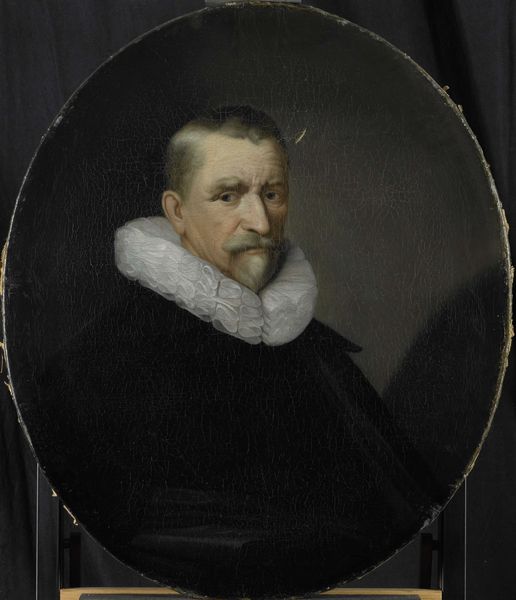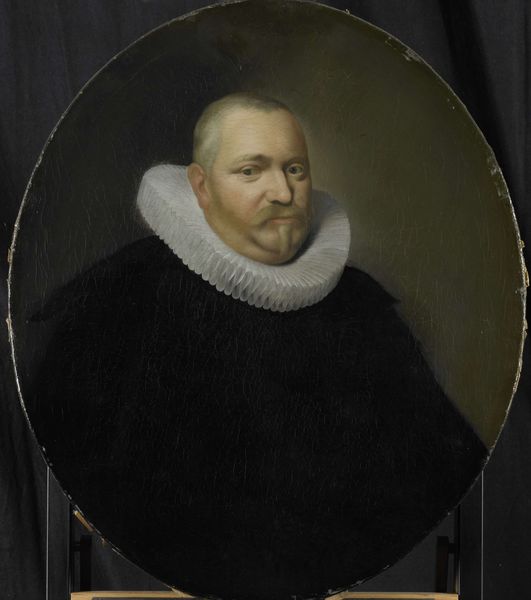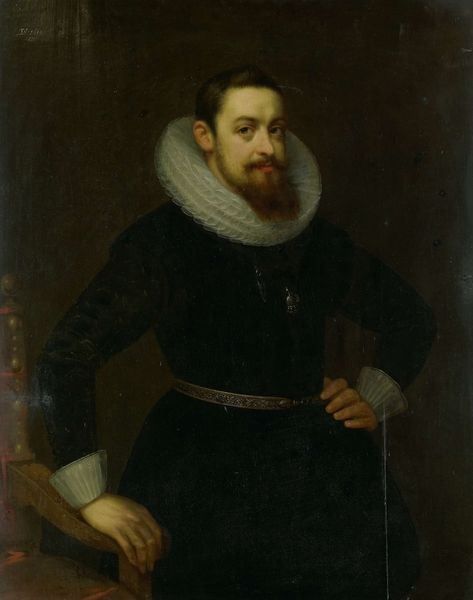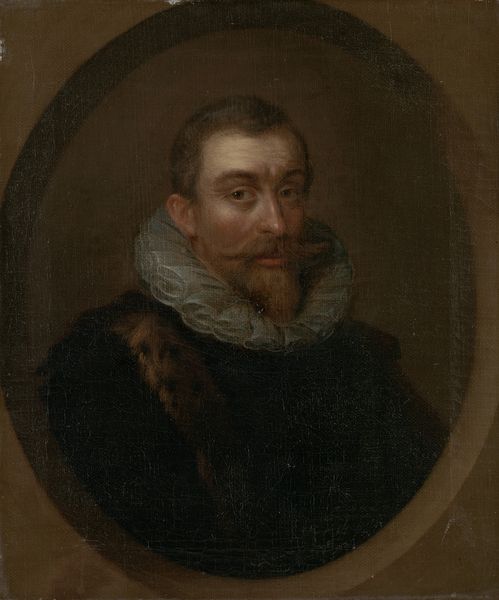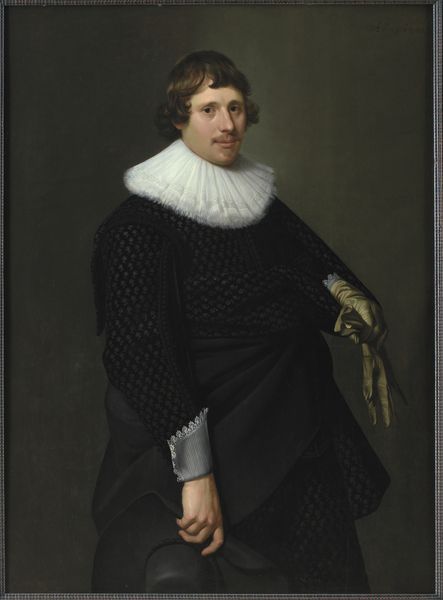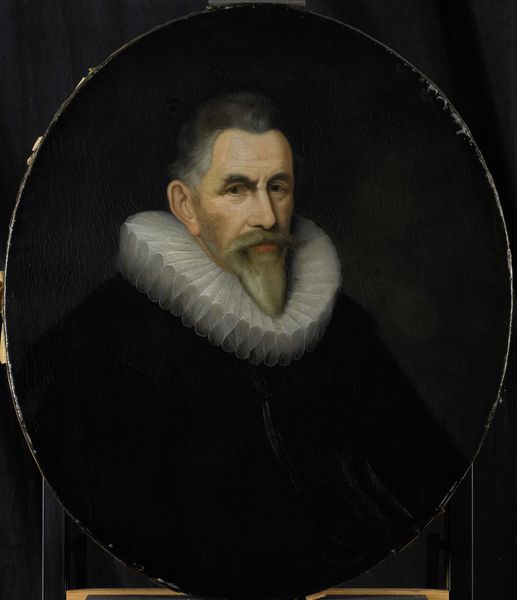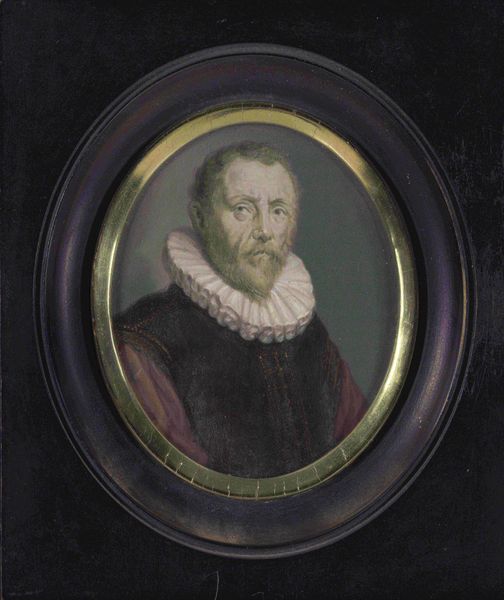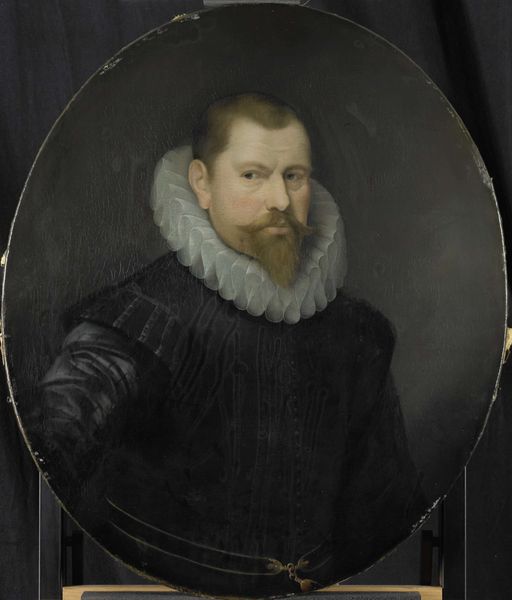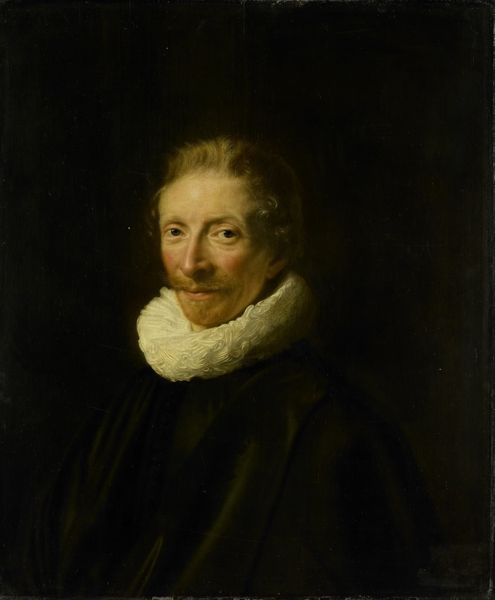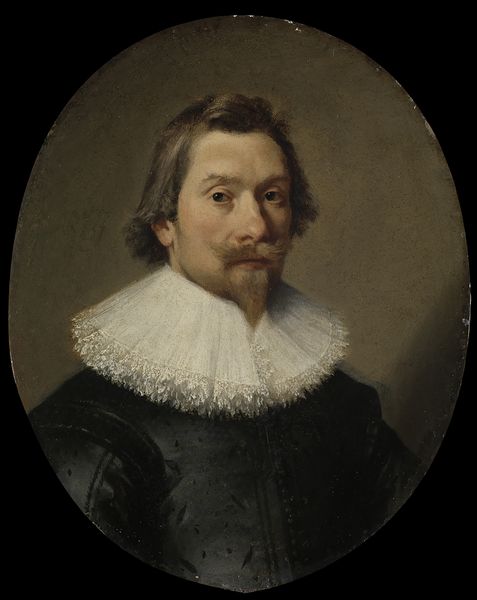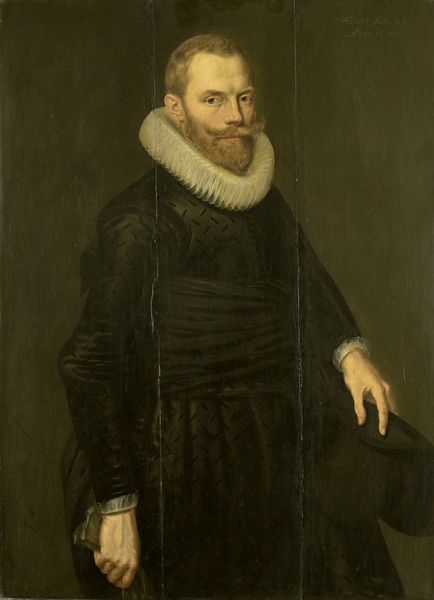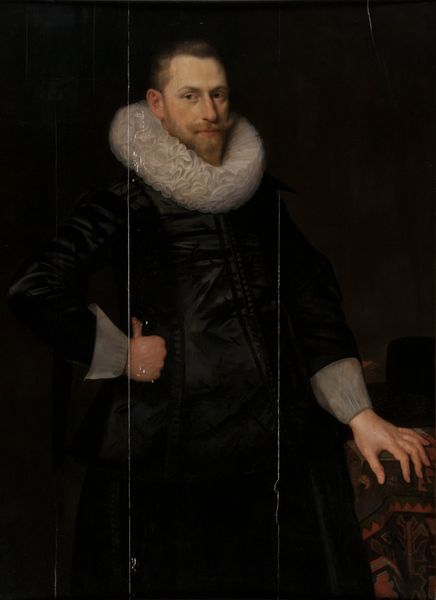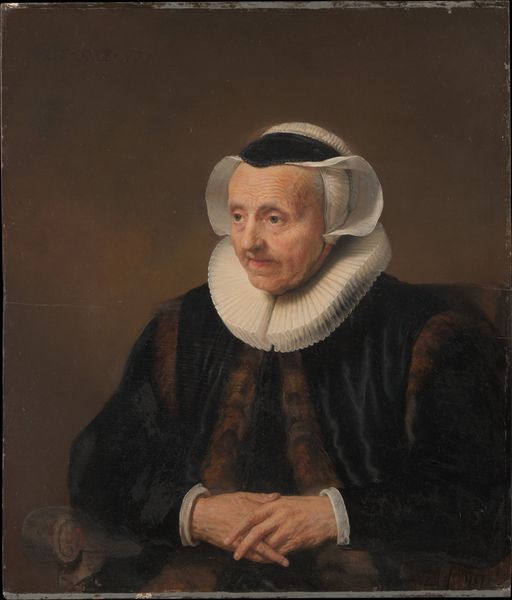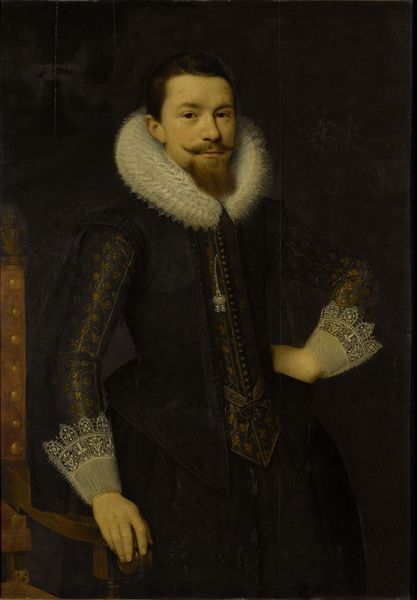
painting, oil-paint
#
portrait
#
baroque
#
dutch-golden-age
#
portrait
#
painting
#
oil-paint
#
figuration
#
realism
Copyright: Public domain
Editor: This is Rembrandt van Rijn's "Portrait of a Man," painted in 1632. The subject's gaze is so direct; it almost feels like an accusation. How do you interpret this work, especially considering its historical context? Curator: What strikes me is not just the direct gaze, but the man's almost challenging expression, given the strictures of 17th-century Dutch society. Consider the historical backdrop. The Dutch Golden Age was marked by immense mercantile wealth and a growing merchant class seeking ways to assert their status. How does portraiture function here as a form of social signaling? Editor: So, this portrait is making a statement about the sitter's place in society? The ruff around his neck does seem pretty extravagant. Curator: Absolutely. That ruff is a loud proclamation! But let's dig deeper. Who do you think typically commissioned portraits like this? Was it the landed aristocracy or this new class of wealthy merchants and professionals? This painting style isn't like other flamboyant Baroque ones either. Do you find a sense of realism in his rendering of the sitter? Editor: It does feel very grounded in reality. There's a deliberate lack of idealization. Given what you've said, I wonder if it challenges conventional ideas about class and the very definition of "portraiture". The painting portrays him with a humanity that I find affecting. It seems to bridge the gap between him and the viewer despite the gap of centuries. Curator: Precisely! Rembrandt gives us not just a likeness, but an individual negotiating identity in a time of immense social change. That is what marks him as a timeless commentator on society. Editor: That adds a whole new layer to how I see the painting now. Thanks for sharing your perspective!
Comments
No comments
Be the first to comment and join the conversation on the ultimate creative platform.
